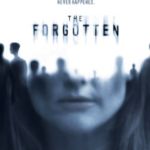A.I. Artificial Intelligence (2001)
The vulnerability and curiosity of children have been a constant subject throughout Steven Spielberg’s career. From the boyish wonder of Eliot in E.T. to the curiosity and sensitivity of Jim in Empire of the Sun, Spielberg has trained his audiences to recognize these youthful adventures. But what he presents in A.I. Artificial Intelligence is something unexpectedly divergent.

A.I. is a dark fairy tale — complex, full of literary allusions, stitching genres together in episodic fashion — and Spielberg tackles an adventure of biblical proportions. In the beginning (and I say that with all its biblical implications), an image of the sea, often a symbol for maternity or destruction, is splashed across the screen while the narrator (Ben Kingsley) explains that in the not-so-distant future drastic climate change will lead to drowned coastal cities and global starvation. In order to conserve the resources that remain, humanity has developed advanced robots called “mecha” and stabilized society by “strictly licensing pregnancies.”
The government-enforced regulations on pregnancies, which are eerily reminiscent of China’s “one-child policy,”[1] only worse, have left many couples yearning in vain for children. As a result, the mecha-producing company Cybertronics builds David (Haley Joel Osment), the first-of-its-kind artificial child to assuage the loneliness and suffering of childless adults. What’s different about David is that he is the first mecha programmed to have real (or at least simulated) feelings. As his creator Professor Allen Hobby (William Hurt) puts it, David is the first mecha made to love.
David is adopted by a couple whose only son, Martin (Jake Thomas), lies frozen in cryo-stasis, afflicted with what they’re told is an incurable disease. Henry (Sam Robards), a Cybertronics employee, sees David then as a kind of sensory toy, a tool to help his wife Monica (Frances O’Connor) begin to mourn their terminally ill son. Monica is at first horrified — David’s skin, unlike that of the other mechas, is so realistic — that her husband would even consider there could be a replacement for their real son.
Programmed with the capacity to love, David should theoretically develop an “inner life of metaphors and dreams” once the imprinting protocol has been activated by his adoptive parents. But such advancement in technology brings consequences. While other mechas perform simple functions as soldiers, servants, and even prostitutes, a child mecha can never be resold. Their imprinting is permanent and attaches them emotionally to a particular person, so it would cause painful confusion if they were transferred to new owners. That means that if parents become tired of their child mecha, they must be returned to Cybertronics for destruction.
The first third of the movie leans into the discomfort and anxiety that David’s presence in the home creates. Silently appearing behind Monica on several occasions, David seems plucked from a Stephen King novel rather than a Steven Spielberg film. Osment’s slow and stiff movements, shockingly blue eyes, and creeping smile also give him the uncanny appearance of a lifelike doll, a Pinocchio allusion that, although obvious, the film cleverly taps into throughout. David’s inquisitiveness into human interactions and seeming ability to imitate them almost instantly brings both dread and curiosity. There is a surprisingly unsettling scene when David answers an urgent and frantic call from Henry but functions as a speakerphone by projecting the adult voice through his child-sized mouth. It is a trope that pervades fairy tale stories like Pinocchio and also horror stories like Frankenstein, the idea that simulated human life is both fascinating and riddled with fear and uncertainty. That fear and uncertainty dominate David’s new home until Monica slowly becomes enchanted by the boy.

One of the more poignant moments of the film comes when Monica decides to initiate David’s imprinting protocol, effectively turning on the irreversible circuit breaker that will make David love her unequivocally and eternally. He catches Monica off guard by uttering the word “mommy,” at which she immediately melts in a way that makes you wonder how long she has been yearning to hear that word again. David folds himself into Monica’s arms, no longer in a stiff robotic way but in a warm and childish way that signals Monica will forever love him in return.
But not all children are created equal in this story. When Martin returns home, having miraculously recovered from his disease, David is met with a conniving, sarcastic, and mischievous child. Humans, it seems, let jealousy disrupt their own ability to love. The rivalry builds until one of Martin’s friends attempts to see if David can feel pain, leading David to accidentally endanger Martin’s life.
Here, Spielberg’s probing reaches existential though ambiguous depths. If we side with David and the mistreatment of him and his mecha brethren, as we are clearly asked to do, then are we glossing over the best of human nature or agreeing that human nature is fundamentally flawed and unsalvageable? The truth likely lies somewhere in the darker middle, which is exactly where the entire narrative shifts.
Henry can see no solution but to return this sensory toy to Cybertronics for destruction. Monica on the other hand has become attached. No matter how much she tries to convince herself that David is not real, she can’t fully believe it. Even if David’s emotions are simulated, she cannot bear to watch him break down in tears and pleading — and neither can the audience as Monica abandons David in the woods rather than turn him in for destruction.
The tone shifts abruptly as David finds himself in a dark, mythic adventure quest. He is convinced by a rather childlike but endearing logic that if he finds the real blue fairy from the story of Pinocchio then he can become a real boy and Monica will love him again.
Accompanied by a braggadocious sex-slave mecha named Gigolo Joe (Jude Law) and a supertoy teddy bear (voiced by Jack Angel), the three friends are quickly captured by a gang of mecha hunters. One of Spielberg’s more stunning images throughout the movie, a large full moon which rises quickly over a hill (harkening back to the famous scenes from E.T.), is cleverly inverted when it is revealed to be an enormous air balloon captained by the gang’s leader, Lord Johnson-Johnson (Brendan Gleeson).
The three friends are rounded up and brought to a Flesh Fair (also tagged as “A Celebration of Life”) — a sort of combination gladiator games and southern revival — where humans delight in “demolishing artificiality” and promoting a purely human future. Making their way out of the Flesh Fair, through the glitzy debaucherous zone of Rouge City, and eventually to a half-flooded Manhattan, David’s sole purpose is to find the blue fairy who can give him the only thing he desires, the gift of a human life.
Spielberg opts for a final dramatic shift in the last scenes, likely in search of the sublime and biblical ending rather than the succinct and tied-off of his previous ventures like Jurassic Park or Raiders of the Lost Ark. Pushing into stranger and unexpected territory, the story leaps thousands of years into the future to see what has become of David. The very end, which viewers should really witness for themselves, ties together both a cathartic experience of the family and that aching desire of a child to find solace in the simple act of being loved.
The questions that remain at the end of the film should inspire discussion. We are certainly reminded of a dark and simple truth: when humanity begins to regulate and control life, it slowly begins to destroy it. Yet digging into that truth uncovers myriad questions. Why is it that we simulate real life? What does it mean to be real and human? What has happened to humanity that we constantly need to be reminded of our very nature?
As The New York Times’ A.O. Scott put it in his initial 2001 review of A.I.: “Refusing to cuddle us or lull us into easy sleep, Mr. Spielberg locates the unspoken moral of all our fairy tales. To be real is to be mortal; to be human is to love, to dream, and to perish.”
A.I. Artificial Intelligence’s MPAA rating is PG-13 for some sexual content and violent images. Directed and written by Steven Spielberg; based on the screen story by Ian Watson and the short story ”Super-Toys Last All Summer Long” by Brian Aldiss; director of photography, Janusz Kaminski; edited by Michael Kahn; music by John Williams; production designer, Rick Carter; costumes by Bob Ringwood; make-up effects by Stan Winston; visual effects by Dennis Muren and Scott Farrar; practical effects by Michael Lantieri.
The film was dedicated to producer-director Stanley Kubrick, who began production of the movie but shelved the project as special effects technology was not advanced enough to achieve his vision for the film. Kubrick, before his death, decided Spielberg was a better fit for the film and should take over the project. Spielberg has since credited much of the movie’s script and inspiration to Kubrick, particularly the first and final thirds of the film. Running time: 146 min.
[1] Director Spielberg and his wife, actress Kate Capshaw, have five children, two of whom are adopted.
— Justin Petrisek is a writer based out of Virginia. He received his M.F.A. in creative writing and M.A. in literature from George Mason University as well as an M.A. in theology from the Augustine Institute.















